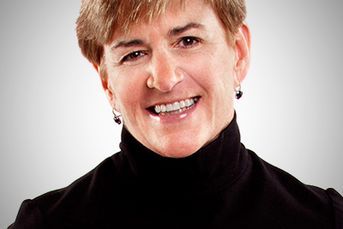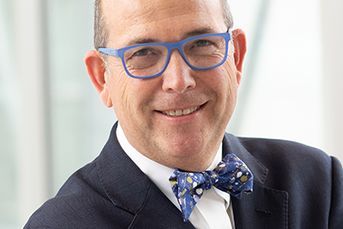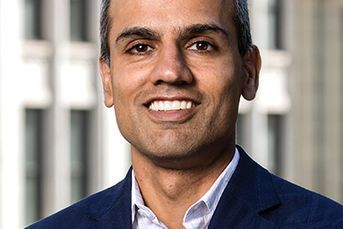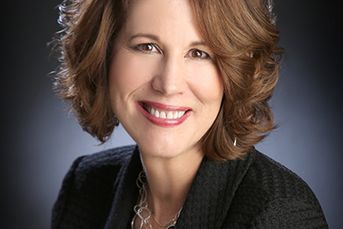Take a family-centered approach when working with Indian-Americans
Financial advisers may be overlooking an affluent, often high-net-worth demographic: people of Indian origin
Financial advisers may be overlooking an affluent, often high-net-worth demographic: people of Indian origin.
“I absolutely feel that Indian-Americans are underserved. There’s no one writing about the Indian diaspora now,” said Sanjeev Sardana, chief executive of BluePointe Capital Management LLC.
He recently published a white paper on the intercultural challenges faced by high-net-worth Indian-Americans. Most of the people he interviewed are his clients, predominantly technology entrepreneurs, chief executives and venture capitalists from India.
According to the report, challenges unique to the high-net-worth Indian-American community include international estate planning, including inheritances in India; India-based philanthropy; identifying reliable business service providers in the United States and abroad; taking care of aging parents in India and the U.S.; and international tax and income issues.
In 2006, Mr. Sardana became a registered investment adviser in order to accommodate his Indian-American clientele more effectively.
“As a broker [previously], it became very hard for me to be as objective as I need to be. And I couldn’t be as culturally responsive — hosting cultural events, connecting angels with entrepreneurs, serving on boards of cultural organizations,” Mr. Sardana said.
One of the most important cultural considerations to understand is Indian-Americans’ emphasis on family.
“They are especially concerned with growing the net worth for the family, which may include siblings, aunts and uncles,” said Ajay Kaisth, a certified financial planner and principal at KAI Advisors.
“[Indian-Americans] over 50 probably grew up in a “joint family’ — living in homes with an extended family, with grandparents, adult children and their families, and siblings and their families,” said Ekta Patel, managing adviser with Altfest Personal Wealth Management.
“There is a general feeling that if one “makes it,’ it is their responsibility to help the extended family,” she said.
“They have a very sharp focus on helping their children accumulate assets. You’ll see asset transfers to younger-aged children, often in the form of gifting and limited-liability corporations,” Mr. Kaisth said.
“The most important thing is education planning, which takes precedence over everything, including retirement. They want their kids’ lives to be better than theirs,” said Shikha Mittra, a CFP who is president of Retiresmart Consulting LLC.
“They will live very frugally to reach these financial goals,” she said.
“Many Indian-Americans don’t believe in debt. They try to pay off everything as soon as possible, and prefer to not have student loans, second mortgages or credit card balances,” Ms. Mittra said.
“Because of concerns for aging parents in the U.S., in India or in transition between the two, these clients are often interested in optimizing cash flow,” Mr. Kaisth said.
Attitudes toward long-term care have a cultural bias.
“The majority of Indian-Americans don’t believe in nursing-home care. This can create conflict in relationships between the generations as parents expect their adult children to take care of them,” Ms. Mittra said.
“For planning implications, the options may be in-home care or returning to India for full-time care,” she said.
Real estate is a strong interest for people of Indian origin.
“It’s very culturally important to own real estate. They frequently have pre-existing assets in India, and have a general interest in tangible assets and private partnerships,” Ms. Patel said.
“They often purchase real estate, such as first homes, for their adult children. The older generation started very frugally — beyond just living within their means,” Ms. Patel said.
“It’s important to help them understand the role of real estate as a part of their investment portfolio — and to think about diversification,” she said.
CROSS-BORDER ISSUES
Locating trustworthy and competent professionals to help with cross-border issues is a challenge. In response, both Mr. Sardana and Mr. Kaisth have developed their own networks of partners in India.
Indian-Americans may also search for answers on cross-cultural issues from online sources such as InvestmentYogi.com, for which Ariadne Horstman works as an online financial adviser.
“Most [Indian-Americans] have cultural and financial ties with India, but many don’t know all the rules and regulations for international financial holdings accounts, property or inheritance in Indian co-held accounts,” she said.
“They need to be educated on what they need to do to be compliant. For example, the foreign-bank-account report carries huge fines if not filed — there are prison sentences if people willfully don’t report,” Ms. Horstman said.
“Other special situations include setting up trusts — the adviser needs to be sensitive to the legal status of everyone in the family. And mutual funds held in another country are subject to special taxation,” Ms. Horstman said.
For those interested in working with people of Indian origin, Mr. Kaisth said: “Because many have international experience, they feel more comfortable with international and emerging-markets allocations. It’s important to have a global outlook.”
“There’s room for education of this demographic — about retirement, financial planning, looking at overall assets, coordination of asset and financial planning, and integrating real estate into the portfolio,” Ms. Patel said.
“Even more important than understanding the culture is understanding their need to get the family involved. Offer to educate the children in the financial planning process,” she said.
Learn more about reprints and licensing for this article.








